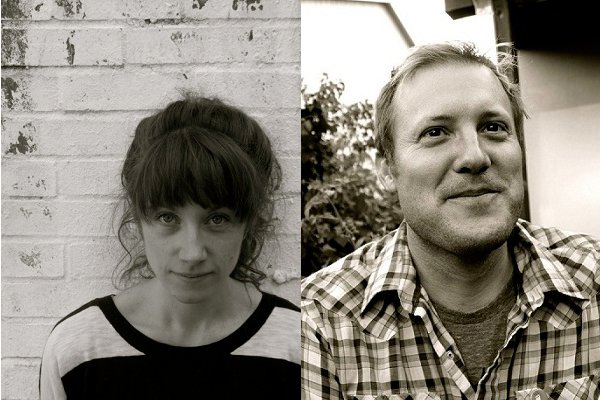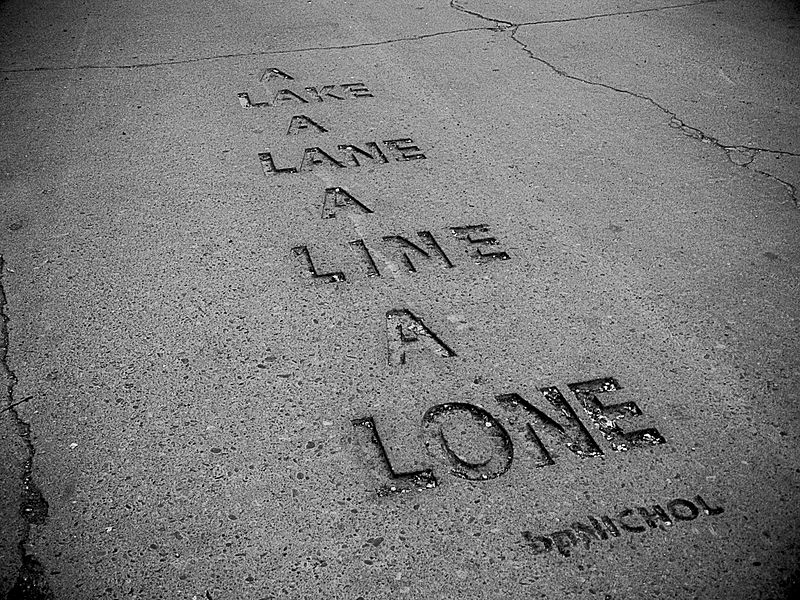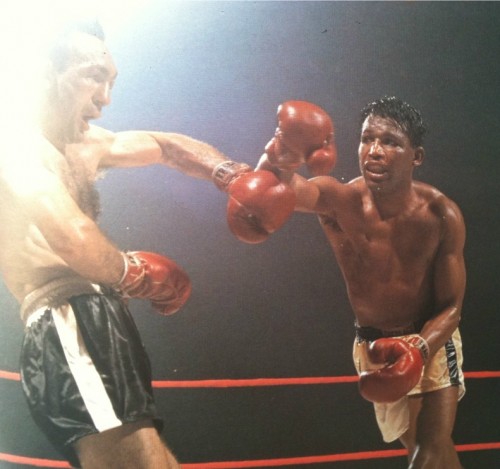thx RAINBOW SATAN for the tweetip
Christle/Schomburg West Coast Reading & Tag Sale Tour

Heather Christle & Zachary Schomburg have hit the road up the west coast for a week-ish to bring your words and things. Do a look and do a go!
October 6-11
poetrytour.tumblr.com
Before/after readings the poets will have second-hand objects for sale, including small kitchen appliances, cassette tapes, athletic equipment, sweaters, and issues of National Geographic. Items will be sold with a unique collaborative poem by Christle & Schomburg. No early birds.
Dates as follows… READ MORE >
File this under “Making Shapely Fiction”: A Tea Party protest attracted Birthers and Libertarians and Constitutional “Originalists” and Anti-Abortion Activists and Christian Homeschooler Dominionists and Second Amendment Loyalists and Anti-Immigrationists and Anti-Socialists and Race-Baiters and Mainstream Republican Activists and people who want the government to keep its hands off their Medicare AND people who think they are Taxed Enough Already. If their message seemed “cohesive,” (see also this, this, or any of these) maybe that was because they had a corporate-funded lobby and an entire news network dedicated to shaping the message into a cohesive one for them.
[Those in Pacific Standard Time, click on image if you want to fucking rock out with me, and turn it up you fags.]
Teaching Creative Writing: Syllabus as Story, Story as Scaffolding
A syllabus tells a story. The story I work to make mine tell is, It all fits together.
When I teach an introductory creative writing course, I try to make every one of the course’s components “belong together.” I try to design and arrange these components so that they’re engaged in “conversation”—so that they not only usefully complement one another, but lead to and precede from each other in ways that model process. I’d like, above all, for my students to become consciously and unconsciously aware of how these components are “aware” of their fellow components.
By “course components,” I mean first-day activities, readings, close reading, freewrites, exercises, workshop/peer review, annotations, presentations, conversations, student-teacher conferences, grading rubrics, teaching persona, and the like—anything a teacher builds, administers, moderates, and is responsible for.
But course components that “belong together,” that “converse,” that are “aware”? You might be thinking, “Joe, that’s vague.” Or, “Duh.”
To ground these metaphors, I’d like to offer a term employed by pedagogical scholars, a term you might already be familiar with: scaffolding.
wallop
And the trouble people took to attach a modern-sounding label to these texts and to create a special genre-haven’t there been short texts since way back when? So people were, perhaps they still are, fidgeting with blaster, sudden fiction, flash fiction, prose poem and attempting to segregate these texts. The quality of the thing ought to be foregrounded. -Diane Williams
I believe a reader must work harder in interpreting flash, filling in those gaps with his or her own experiences. -Kim Chinquee
I love the immediacy of the medium–of reading a story that is not only compressed, but memorable in the images that are presented. -Meg Tuite
I had long admired the very short stories of Kafka, Borges, Hempel, others, before I gave the idea of length any real thought. -Pamela Painter.
I’ve been very interested to see what different writers have done with the very short form. It can go in so many directions, and whether one chooses a sort of mini-essay or mini-narrative or prose poem, meditation, etc., each will be quite different because the mind of each different writer comes through so clearly–the writer’s way of thinking, viewing the world, and then of course his or her way of handling language. In such a short form, each word has to be right. -Lydia Davis
I think my stories start fairly short, somewhere in the neighborhood of 200-300 words, and often stay there. -Chella Courington
I’ve always read the shortest stories I could get my hands on. It’s always appealed, the power to receive the full scope of a piece, to tour all the feelings the writer wants you to feel in one uninterrupted moment. It’s so easy to be brutal without consequence to characters in the shortest form. -Amelia Gray
I also think it’s the least egotistical form of writing. Not a lot of show-offs go into writing flash. None that I know anyway. -Mary Hamilton
R.I.P. Charles Napier, 1936–2011. You will be missed but you will live on forever in your cinema! I’ll be watching Beyond the Valley of the Dolls soon in your honor… (P.S. Please give my regards to Mr. Thompson!)
FictionSpeak 1
For the next couple of months, I’m going to run this weekly series, FictionSpeak, because, well, I’m a poet trying to write fiction, which seems like it could be worth talking about.

I started writing fiction a few weeks ago. I’m writing this fiction in a square yellow sketchbook. Just like a poet to be writing fucking fiction in a square fucking sketchbook, you say. On top of that, I’m only writing on one side of the page. And I’m only writing in snapshots that will ostensibly form a novel. It’s probably a disgrace to fiction writers everywhere, what I’m doing. I don’t understand things about dialogue or character development. I really don’t understand plot. Zip. Zilcho. I think I’m decent at description and setting and emotional arc, poetical things, so then why am I not writing poems in my new fancy-pants sketchbook. Because I already have a black vinyl, lined notebook for poems, silly.
Originally, this fiction-in-a-sketchbook thing was going to be memoir. Then I read The Chronology of Water the other weekend. Then I picked up Sarah Manguso’s The Two Kinds of Decay, which I’m reading right now, and I thought two things. One, I don’t have the stuff of a memoir yet. Two, these books are great to read if you want to write fiction. For different reasons. Lidia Yuknavitch for voice and fierceness. Manguso for matter-of-factness and snapshot.
Back in grad school at ole Emerson, I’m pretty sure there was a fiction-writing-for-poets course, or maybe a poetry-for-fiction-writers course. I never took either. Navigating fiction makes me feel like I’m walking into a Templar initiation ceremony or something. It’s dark. There are candles. Robes. Dorky music. A guy in a mask with a sword doing degrading things to another guy who poses just the right way to look simultaneously mysterious and mastered.
Umm, nevermind.
My first question is this. Writing fiction forces me to dredge up weird shit from my past and use it with different characters and settings. I mean, I’m raping my life wholesale. Is that normal? Somebody said to me yesterday, “Change the facts enough so your family doesn’t recognize them.” My feeling is that I’ll change them just enough to fit the narrative, just enough to make them work for me. I mean, that’s what poets do…
The Other Poems interview with Paul Legault
Sam Ross: Paul, your book begins with an epigraph from bpNichol:
From there the book erupts into a series of sonnet-dialogues with a host of personages, personifications, and “others”–from Whales, to Celibacy, to Mayakovsky as a Pony. Are these dialogues a means of approaching a dialogue with the self (as bpNichol suggests), mocking attempts at such a dialogue, or are the Others meant to be fragments of a unified self or whole (I’m thinking of a title of one of the Other Poems which begins: “We are made up of smaller version of ourselves stacked up on top of the smaller versions of ourselves….”). Maybe all three? Also, look at this!

(I like this.) READ MORE >




